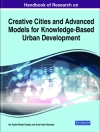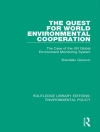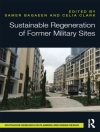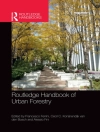This book is a multidisciplinary manuscript bringing together contributions on water issues from natural and social scientists focused on water management and structures in a challenging environmental situation such as Dakhla Oasis in Egypt’s western desert. The authors of this book are relevant scientists in hydrology, geology, remote sensing, agriculture, history, and sociology. It is devoted to various critical environmental topics such as geological and hydraulic structure, climate influence, underground water management, irrigation management, and human settlement. The book provides a range of new perspectives on solving different environmental problems in arid zones toward the region’s sustainable development, based on the case studies and fieldwork in the Dakhla Oasis (Western Desert, Egypt).
Содержание
Part I: Introduction.- Chapter 1. Introduction to “Sustainable Water Solutions in the Western Desert, Egypt: Dakhla Oasis” (Abdelazim M. Negm).- Chapter 2. The Egyptian Western Desert: Water, Agriculture and the Culture of Oases Communities (Soheer Hussen Ibrahem Mohammed).- Part II: Geology, Geomorphology, Archaeology and Climate.- Chapter 3. The Geology of Dakhla Oasis, Western Desert, Egypt (El-Sayed Zaghloul).- Chapter 4. Geomorphology of Dakhla Depression (Atef Moatamed A. Mohamed).- Chapter 5. Archaeological Sites in Dakhla Oasis, Western Desert, Egypt (El-Sayed Abbas Zaghloul).- Chapter 6. Climate Features of Dakhla Oasis (Reiji Kimura).- Part III: Land use, soil and Cultivation.- Chapter 7. Aeolian Sand Transport Potential and its Environmental Impact in Dakhla Oasis, Egypt (Abbas M. Sharaky).- Chapter 8. Soil Conditions of Dakhla Oasis, Western Desert, Egypt (Abdelaziz Belal).- Chapter 9. Remote Sensing and GIS for Land Use / Land Cover Change Detection in Dakhla Oasis (Adel Shalaby).- Chapter 10. Crop Diversification and its Efficiency in Rashda Village, Dakhla Oasis (Erina Iwasaki).- Part IV: Hydrological Aspects and Water Resources. Chapter 11. Hydrologeological and Hydrological Conditions of Dakhla Oasis (Salwa F. Elbeih).- Chapter 12. History of Wells in Rashda Village (Erina Iwasaki).- Chapter 13. Development of Land Use and Groundwater in Rashda Village (Dakhla Oasis), 1960s-2018 (Erina Iwasaki).- Chapter 14. Detecting and Controlling the Water Logging in El-Dakhla Basin (El-Sayed E. Omran).- Chapter 15. Hydrogeophysical Investigations Using DC Resistivity Survey to Assess the Water Potentialities of the Shallow Aquifer Zone in East of Dakhla Oasis, Egypt (Khaled S. Gemail).- Part V: Conclusions.- Chapter 16. Update, Conclusions, and Recommendations of “Sustainable Water Solutions in the Western Desert, Egypt” (Erina Iwasaki).
Об авторе
Erina Iwasaki is a Professor in the Department of French Studies, of the Faculty of Foreign Studies of Sophia University. She specializes in Middle East and North African studies, in particular Egyptian and Tunisian socioeconomy, with a special focus on development, urban–rural relations. She has written extensively on these subjects, both in Japanese and English. Her current research includes the research on water and irrigation, and communal behaviors, demographic behaviors in rural Egypt and Tunisia.
Abdelazim M. Negm is a Professor of Hydraulics (and Water Resources) at the Faculty of Engineering, Zagazig University, Egypt, since 2004. He got his Ph.D. in 1992 from Zagazig University (ZU) and his M.sc. from Ain shams University in the year 1990. He was Vice Dean of the Faculty of Engineering of ZU from 12/2008 to 12/2011 and was Head of the Environmental Engineering Department at Egypt-Japan University of Science and Technology (E-JUST), Egypt, 10/2013 to 9/2015. He published 25 edited volumes during the period from 2017-2020. He is an editor in several international journals. His research interest is water resources management and sustainability studies. He is listed in several international directories due to his great achievements in his field.
Salwa F. Elbeih is an Associate Professor of Civil Engineering at the Engineering Applications and Water Division, National Authority for Remote Sensing and Space Sciences (NARSS), Cairo, Egypt, since May 2014. She has obtained her Ph.D. and M.Sc. in Civil Engineering from Ain Shams University in 2007 and 2002 respectively She is the Acting Head of the engineering applications department at NARSS. She is the director of the publishing office of the Egyptian Journal of Remote Sensing and Space Sciences (EJRS) since April 2019. She is a member in the scientific committee of the Egyptian Engineers Syndicate since September 2020.Her research interests comprise applications of remote sensing and GIS in civil engineering, environmental and geotechnical engineering, and the relation between archaeological and water resources conditions.












